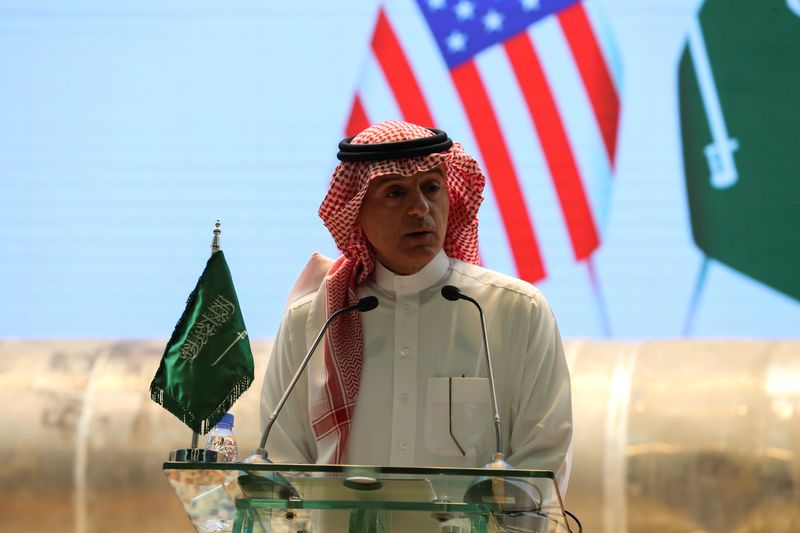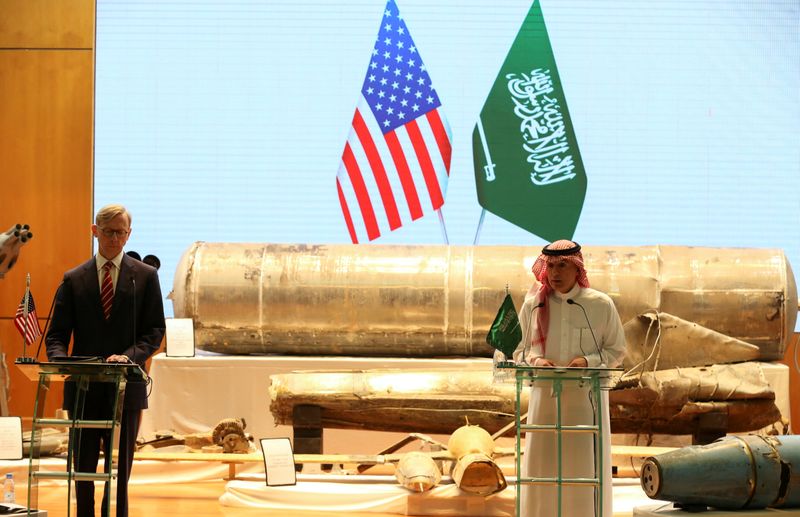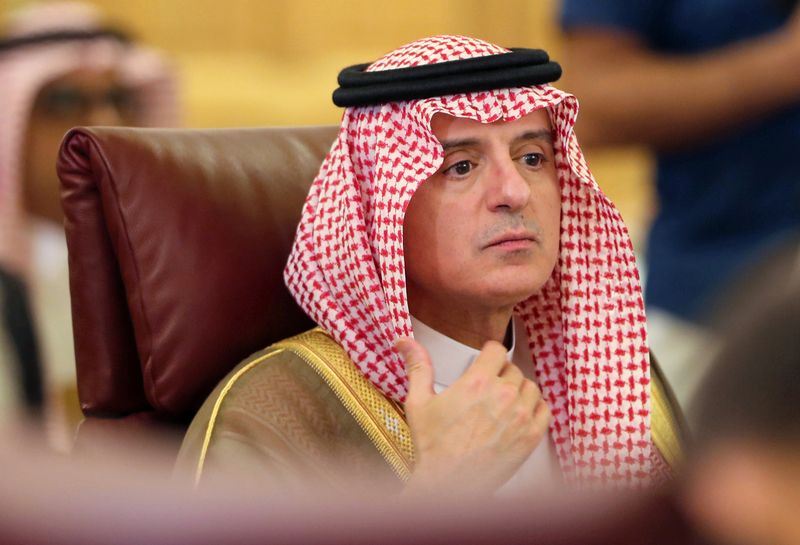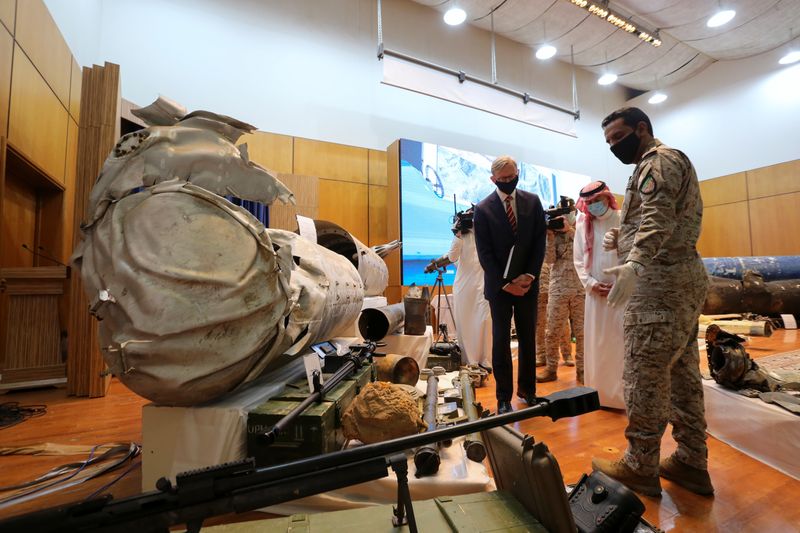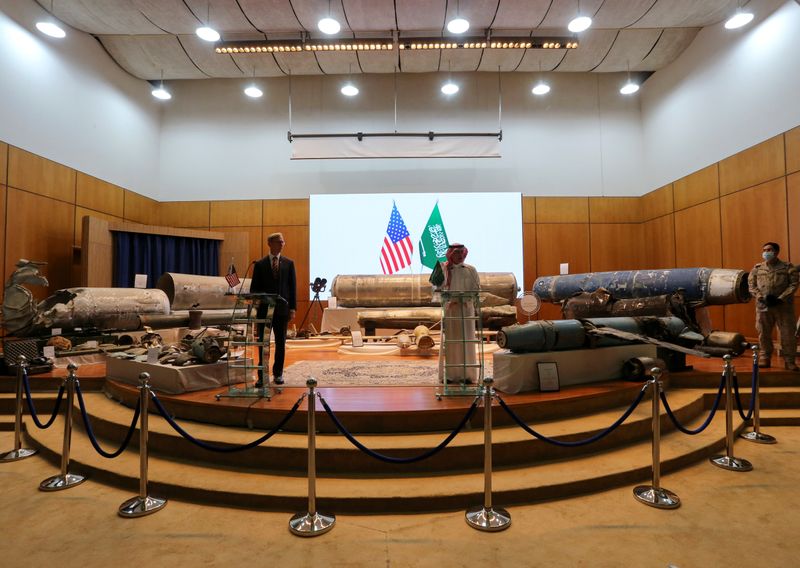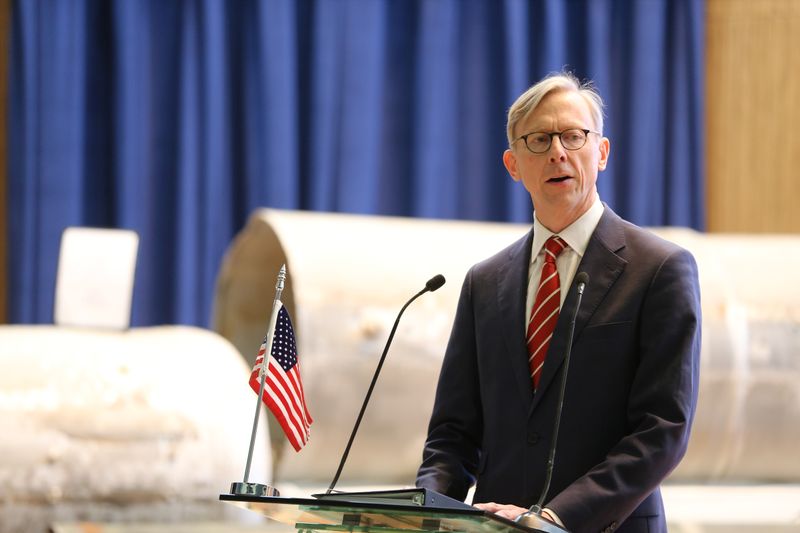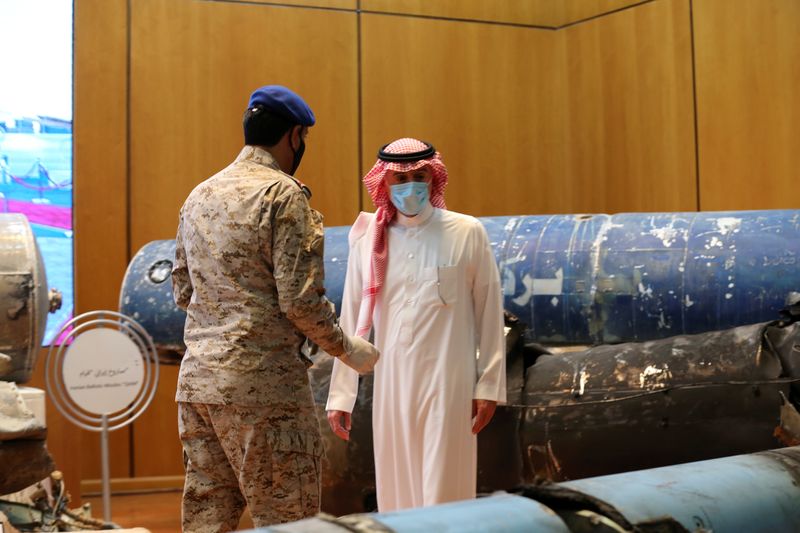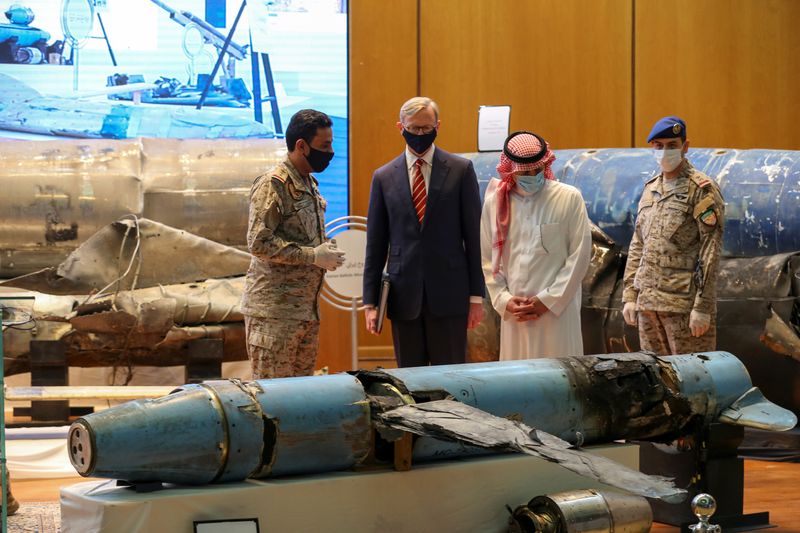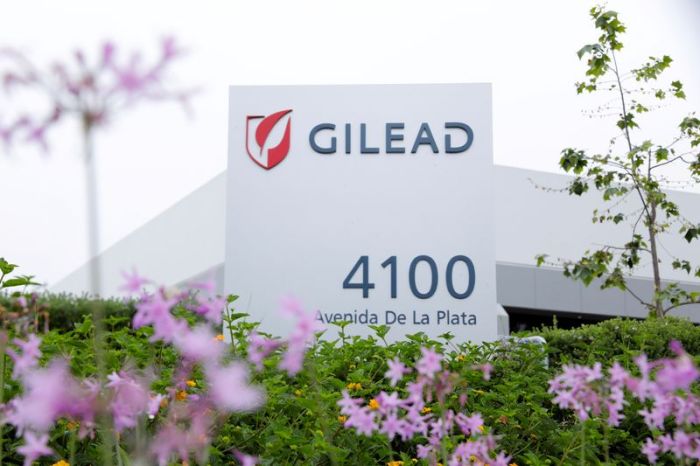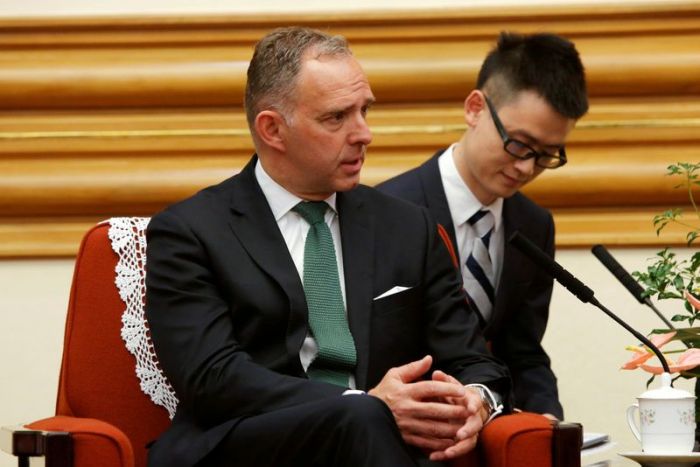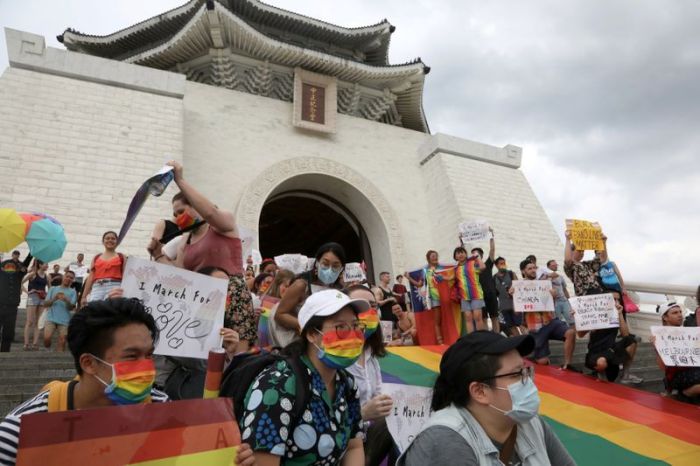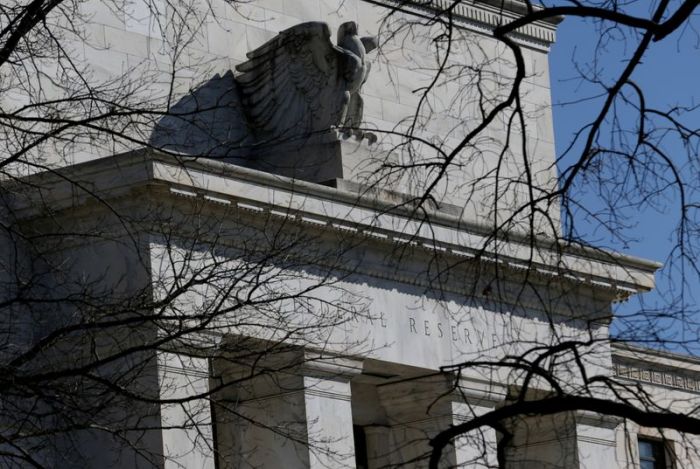RIYADH (Reuters) – Saudi and U.S. officials on Monday urged the international community to extend a U.N. arms embargo on Iran, saying that letting the ban expire would allow Tehran to further arm its proxies and destabilise the region.
The 13-year-old arms curbs on Iran are due to expire in October under the terms of Tehran’s 2015 nuclear deal with world powers. Russia and China have signalled they oppose extending the embargo. Both wield vetoes on the U.N. Security Council, which will decide the matter.
“Despite the embargo, Iran seeks to provide weapons to terrorist groups, so what will happen if the embargo is lifted? Iran will become more ferocious and aggressive,” Saudi minister of state for foreign affairs Adel al-Jubeir told a joint news conference with U.S. Iran envoy Brian Hook in Riyadh.
Jubeir said a shipment of Iranian weapons bound for Yemen’s Iran-aligned Houthi movement was seized as recently as Sunday. A Saudi-led coalition has been battling the Houthis in Yemen for five years.
The conference venue displayed weapons, including drones and missiles, that Saudi authorities said were used in cross-border Houthi attacks on Saudi cities and that were supplied to the group by Tehran.
“We urge the international community to extend the embargo on selling arms to Iran and on Iran’s ability to sell arms to the world,” Jubeir said.
Iran denies arming groups in the Middle East, including the Houthis, and blames regional tensions on the United States and its allies in the region.
Hook said lifting the ban would “only embolden” Tehran, drive greater instability and trigger a regional arms race.
“This is not an outcome that the U.N. Security Council can accept. The council’s mandate is clear: to maintain international peace and security,” Hook added.
(Reporting by Marwa Rashad; Additional reporting by Alexander Cornwell and Lisa Barrington in Dubai; Writing by Ghaida Ghantous; Editing by Mark Heinrich)

